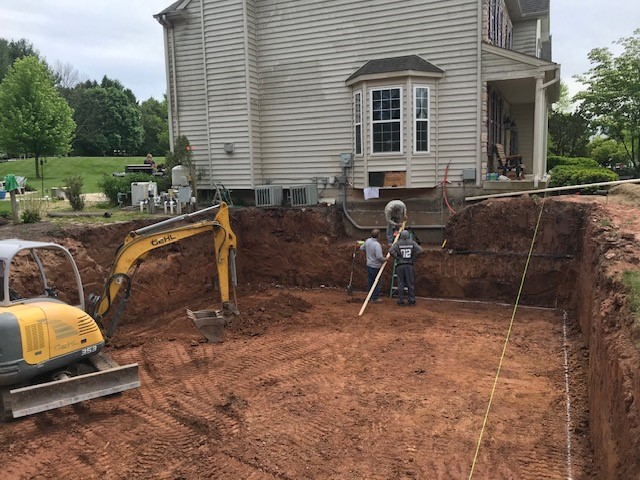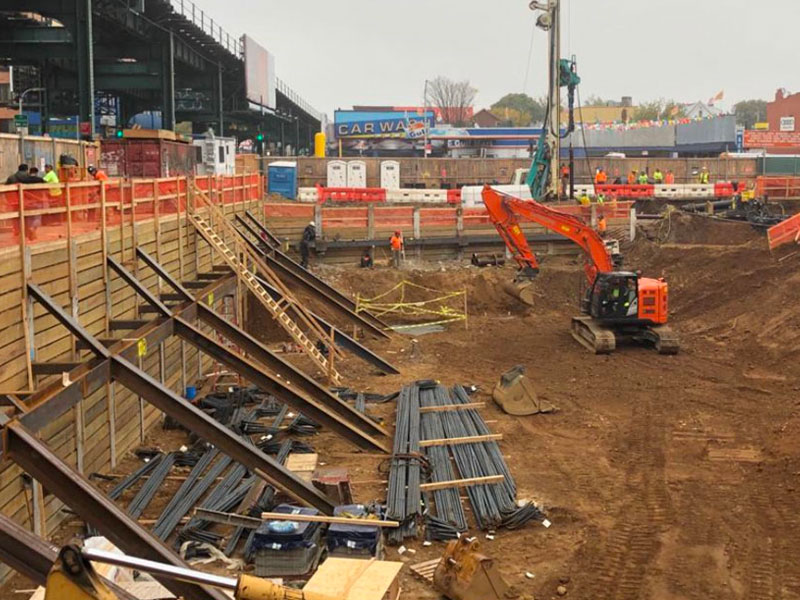Lancaster Excavation - Expert Excavation Services in Lancaster, OH
Lancaster Excavation - Expert Excavation Services in Lancaster, OH
Blog Article
Comprehensive Excavation Approaches: Understanding the Fundamentals for Success
In the realm of construction and civil design, the significance of efficient excavation approaches can not be overemphasized. The cautious preparation, accurate implementation, and careful interest to information needed in excavation projects require an extensive method that encompasses various essential facets. From first dirt evaluation to the execution of precaution and normal progress surveillance, mastering these core elements is necessary for accomplishing success in any excavation undertaking. The real proficiency exists not simply in comprehending these principles but in seamlessly incorporating them to navigate the complexities of excavation jobs with finesse.
Understanding Excavation Job Planning

The first phase of any kind of excavation task is the planning stage, where critical decisions are made that can dramatically impact the result of the task. Recognizing the task range, budget plan, and timeline constraints is essential for developing a thorough excavation plan that guarantees the project's success.
One key facet of excavation job preparation is the growth of an in-depth timeline that lays out the series of activities, landmarks, and target dates. This timeline offers as a roadmap for the project team, permitting them to track progress and make essential changes to make sure the project remains on routine. In addition, a well-defined budget plan that represents all costs, including equipment service, labor costs, and products, is necessary for staying clear of expense overruns and hold-ups. By very carefully considering all these variables throughout the planning stage, excavation jobs can be executed successfully and properly, bring about effective outcomes.
Soil Analysis and Site Evaluation
Conducting comprehensive dirt analysis and website assessment is a vital action in the prep work phase of any excavation task. Dirt evaluation involves determining the composition, framework, and residential properties of the dirt at the excavation site. This information is critical for understanding the soil's bearing capability, dampness web content, and possibility for erosion, which are essential consider establishing the excavation techniques and equipment needed for the project.
Site evaluation surpasses dirt analysis and includes a wider analysis of the overall website conditions. This evaluation includes identifying any kind of prospective risks, such as underground utilities, environmental issues, or unpredictable surface, that can affect the excavation procedure. By thoroughly examining the website, project supervisors can establish effective excavation methods that prioritize safety and security, effectiveness, and environmental management.
Using advanced technologies like ground-penetrating radar, dirt sampling, and drone surveys can boost the accuracy and effectiveness of dirt analysis and site examination. Spending time and resources in these initial steps can ultimately conserve time and protect against expensive delays or complications throughout the excavation procedure.
Devices Choice and Usage
Reliable excavation tasks count heavily on strategic devices choice and use to guarantee optimum performance and productivity. Choosing the ideal tools for the work is vital in making best use of performance and minimizing downtime. Aspects such as the kind of dirt, deepness of excavation, and job extent play a significant role in figuring out one of the most ideal tools for the task at hand.

In enhancement to selecting the suitable tools, appropriate utilization is key to job success. Operators must be trained to manage the tools securely and successfully - septic ohio. Routine upkeep checks and timely fixings assist prevent breakdowns and guarantee constant performance throughout the job
Security Procedures and Regulations Compliance
In the realm of excavation jobs, focusing on safety and security steps and compliance with policies is paramount to ensuring a safe and secure and lawfully audio functional atmosphere. Precaution encompass a variety of techniques, including performing complete site analyses, carrying out correct signage and obstacles, and providing ample security training for all workers associated with the excavation procedure. Adherence to policies, such as OSHA needs in the United States, guarantees that the excavation project fulfills the required standards to protect workers, bystanders, and the surrounding atmosphere.

Monitoring Progression and Adjusting Techniques
Just how can project supervisors successfully track the development of excavation projects and adjust their methods accordingly to enhance outcomes? Tracking development is necessary for making sure that excavation jobs remain on track and satisfy target dates.

Conclusion
Finally, understanding the fundamentals of detailed excavation approaches is important for the success of any kind of project. By understanding job preparation, evaluating soil and site problems, choosing proper equipment, abiding by security regulations, and checking progression, job managers can ensure a effective and smooth excavation procedure. Implementing these methods will certainly result in effective results and minimize prospective threats or setbacks during the excavation task.
The preliminary stage of any type of excavation task is the preparation phase, where vital choices are made that can significantly impact the end result of the project. Comprehending the job budget, timeline, and range constraints is crucial for producing a comprehensive excavation strategy that guarantees the job's success.
Just how can project managers efficiently track the improvement of excavation jobs and adjust their methods appropriately to maximize outcomes? By closely keeping track of progress and being ready to adjust approaches, job managers can enhance the general success of excavation tasks.
By understanding project planning, examining soil and site problems, selecting appropriate devices, find out here complying with safety laws, and keeping an eye on progression, task managers can guarantee a efficient and smooth excavation process.
Report this page